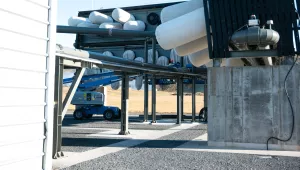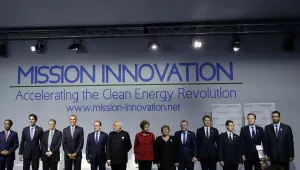Abstract
Stabilizing atmospheric concentrations of greenhouse gases to reduce the risks of climate change requires a major transition in society's energy infrastructure; yet despite a growing sense of urgency, deployment of alternative emerging energy technologies has been slow and uncertain. This paper proposes a systematic, interdisciplinary framework for the integrated analysis of regulatory, legal, political, economic, and social factors that influence energy technology deployment decisions at the state level to enhance awareness of the interconnections and enable improved energy policy and planning and accelerated change in society's energy infrastructure. This framework, Socio-Political Evaluation of Energy Deployment, (SPEED), integrates analysis of laws, regulations, institutions and policy actors as well as varying regional perceptions and levels of awareness about the risks and benefits of emerging energy technologies to facilitate improved understanding of the complex interconnected components of state energy systems. While this framework has been developed with U.S. states as a model, the SPEED framework is generalizable to other countries with different sub-national structures. We present three research methods that could be applied within the SPEED framework that could be particularly helpful in understanding the integrated socio-political influences on energy technology deployment: (1) policy review and analysis, (2) media analysis, and (3) focus groups and structured interviews with key stakeholders. By integrating the fields of technology diffusion, environmental policy, comparative analysis of states, and risk perception, future empirical research conducted within this SPEED framework will improve understanding of the interconnected socio-political influences on energy technology deployment to enable energy modelers, policy-makers, energy professionals, state planners and other stakeholders to develop and implement more effective strategies to accelerate the deployment of emerging energy technologies.
Stephens, Jennie, Elizabeth J. Wilson and Tarla Rai Peterson. “Socio-Political Evaluation of Energy Deployment (SPEED): An Integrated Research Framework Analyzing Energy Technology Deployment.” Technological Forecasting and Social Change, October 2008
The full text of this publication is available via Technological Forecasting and Social Change.





